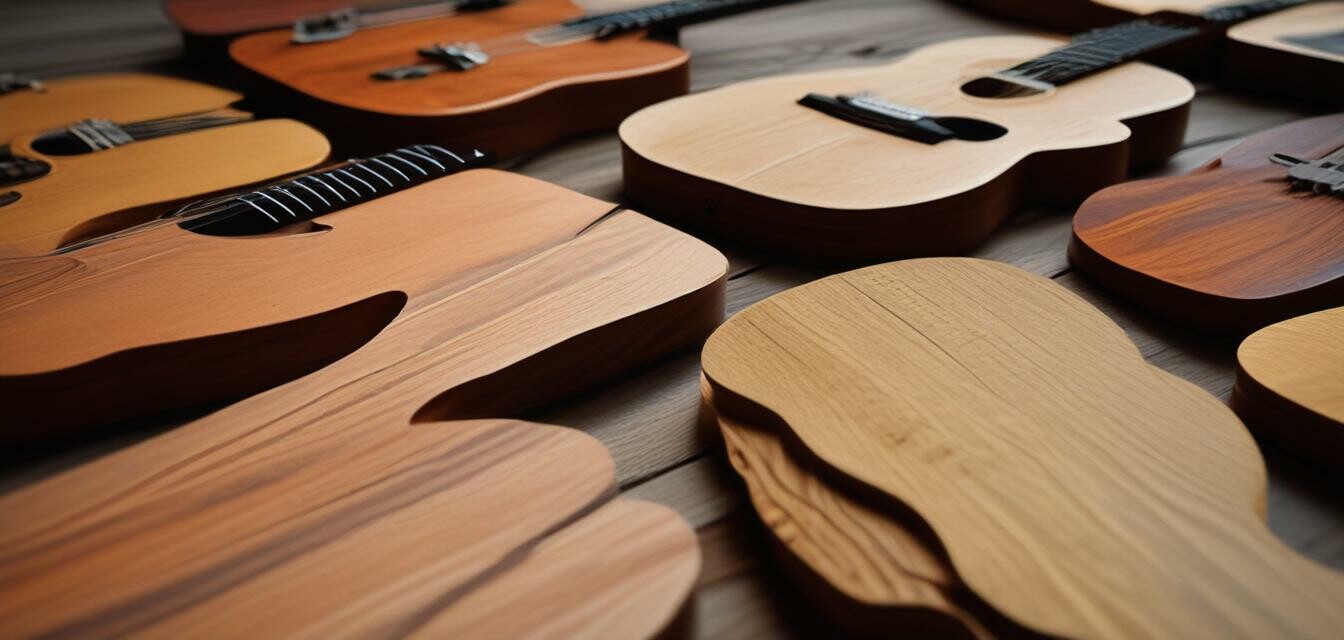
Understanding Tonewoods and Their Influence on Fender Guitars
Key Takeaways
- Different tonewoods significantly affect the sound and tonal characteristics of Fender guitars.
- Common tonewoods used by Fender include Alder, Ash, Mahogany, and Maple.
- The choice of tonewood can influence resonance, warmth, brightness, and responsiveness.
- Caring for your guitar's wood can enhance its longevity and sound quality.
When it comes to Fender guitars, the choice of tonewood is paramount to the overall sound and performance of the instrument. Each type of wood brings its unique qualities to the table, influencing everything from resonance and sustain to warmth and brightness. In this article, we will explore the various tonewoods utilized in Fender guitars and examine how they shape your playing experience.
What are tonewoods?
Tonewoods are specific types of wood chosen for guitar construction due to their acoustic properties. The term encompasses a wide range of timber species, each offering different tonal characteristics that affect the sound projection and quality of the instrument.
Popular tonewoods used in Fender guitars
Fender uses a variety of tonewoods in their iconic guitar models. Below are some of the most commonly used tonewoods:
| Tonewood | Characteristics | Common Uses |
|---|---|---|
| Alder | Balanced tone with good resonance and sustain. Offers a warm sound. | Body of Telecasters and Strats |
| Ash | Bright tone with excellent sustain; often appreciated for its pronounced high end. | Body of Telecasters |
| Mahogany | Warm tone with rich midrange; provides depth and complexity. | Back and sides of many electric guitars |
| Maple | Bright tones with a sharp attack; enhances sustain and clarity. | Necks and tops of various models |
The impact of tonewoods on sound quality
The choice of tonewood plays a substantial role in shaping the sound quality of a Fender guitar. Here’s how different tonewoods can influence your playing:
- Resonance: Certain woods resonate better than others, affecting the guitar's volume and projection.
- Warmth: Woods like mahogany provide a warmer tone, making them ideal for jazz or blues styles.
- Brightness: Ash and maple produce brighter tones, which can be great for rock and pop music.
- Sustain: The density of the wood contributes to how long a note rings out, affecting overall sustain.
How to choose the right tonewood for your playing style
When selecting a Fender guitar, consider your personal playing style and the genre of music you wish to perform. Here are some tips to help you choose:
Tips for Choosing Tonewood
- Determine your preferred sound: Are you leaning towards warm and mellow tones or bright and crisp sounds?
- Consider the genre of music: Some woods suit particular styles; for instance, mahogany for blues and ash for rock.
- Try before you buy: Play several models to see how different tonewoods resonate with your sound concepts.
Caring for your Fender guitar
Taking care of your guitar's wood is essential for maintaining sound quality and longevity. Here are some basic care tips:
- Keep the guitar in a stable, humidity-controlled environment.
- Regularly clean the body and neck to avoid buildup of grime and oils.
- Use guitar polish or wax specifically designed for wood finishes.
- Avoid exposing the wood to extreme temperatures or direct sunlight.
The future of tonewood in Fender guitars
As sustainability becomes increasingly important in the music industry, Fender is focusing on sourcing tonewoods responsibly. This approach not only preserves our forests but also aids in creating environmentally friendly practices.
Conclusion
The choice of tonewood is crucial when it comes to selecting a Fender guitar. Each type of wood brings its own characteristics that can affect your sound and overall playing experience. By understanding these influences and how they relate to your personal style, you can make informed choices that enhance your musical journey. For more expert tips on Fender guitars, be sure to check out our Expert Tips section.
Pros
- Wide variety of tonewoods available to suit different styles.
- Unique tonal qualities can significantly influence sound.
- Enhancing wood care can prolong instrument life and sound quality.
Cons
- Some tonewoods may lead to a heavier instrument.
- Choosing the wrong tonewood can result in unsatisfactory tone.